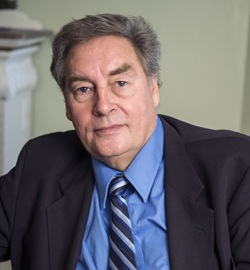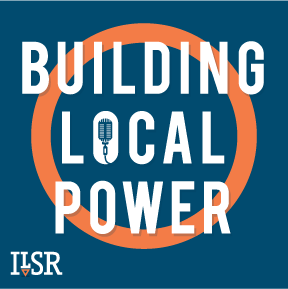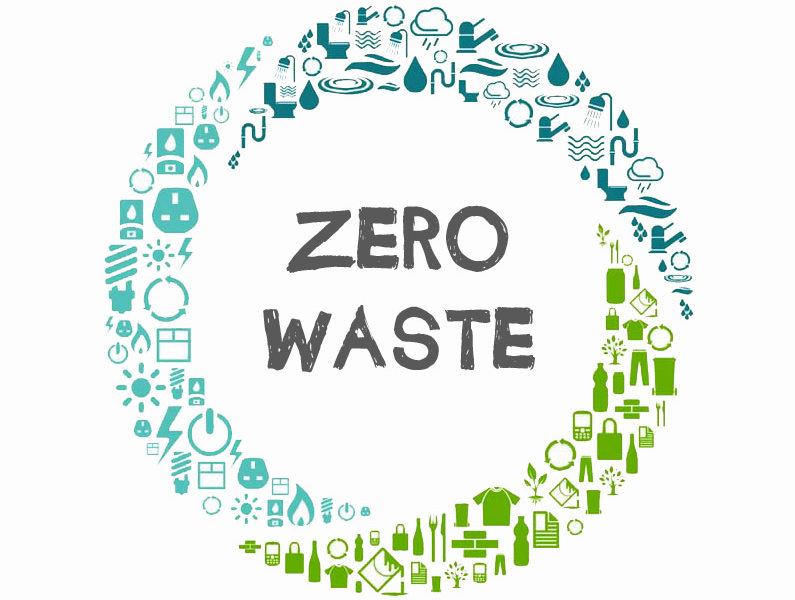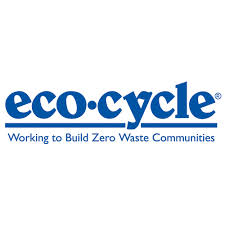Podcast (buildinglocalpower): Play in new window | Download | Embed
Subscribe: RSS
Paul Connett, a sustainability activist and Profess Emeritus of St. Lawrence University, sits down to speak with Building Local Power podcast guest host Nick Stumo-Langer and ILSR co-founder Neil Seldman about his work promoting zero waste policies to communities across the world.Along with Paul’s insights on zero waste policies — from corporate redesign to community fun in participating in sustainability policies — he regales listeners with a version of the Battle Hymn of the Republic, zero waste edition.

“The planet is not going to be solved by the people at the top. It’s going to be solved by the people at the bottom who are prepared to roll up their sleeves and do something. It’s not talking, it’s doing. It’s not saying no to everything, it’s saying yes to something,” Connett emphatically states.
Paul Connett’s Zero Waste and Anti Incineration Presentation — Watch a series of Paul’s presentations if you would like further perspective on zero waste and rejecting incinerators in your community.
If You Study Garbage You Will Not Be Unemployed — Neil Seldman’s essay on the study of garbage as a key economic development activity is a crucial piece in this puzzle for making zero waste communities.
Empowering Our Communities to Redesign: Is Incineration Compatible with Recycling? — This article is based on a report from Zero Waste Europe, where Connett has presented multiple times.
Our guests, Neil Seldman and Paul Connett recommend a series of texts to read about zero waste:
-
“Small is Beautiful: Economics as if People Mattered,” by E.F. Schumacher
-
“The Ecology of Commerce: A Declaration of Sustainability,” by Paul Hawken
-
“The Zero Waste Solution: Untrashing the Planet One Community at a Time,” by Paul Connett & Jeremy Irons
-
“Plastic Ocean: How a Sea Captain’s Chance Discovery Launched a Determined Quest to Save the Oceans,” by Captain Charles Moore
-
“Worms Eat My Garbage: How to Set Up and Maintain a Worm Composting System,” by Mary Appelhof
| Nick Stumo-Langer: | Hello, and welcome to Building Local Power, a podcast from the Institute for Local Self-Reliance. I’m Nick Stumo-Langer, communications manager for Institute for Local Self-Reliance. Joining me today is ILSR’s co-founder, Neil Seldman. |
| Neil Seldman: | Hello, everybody. Nice to be here. |
| Nick Stumo-Langer: | Today, joining us via phone is our guest, Professor Paul Connett, a zero waste superstar. A trained chemist, Paul threw himself into the anti garbage incineration movement while teaching as a chemistry professor at Lawrence University in Canton, New York. Now retired, he travels constantly, teaching, inspiring, and entertaining audiences around the globe.
He is author of The Zero Waste Solution: Untrashing the Planet One Community at a Time, produced the video pieces of Zero, and is featured in the film Trashed by Jeremy Irons. Connett takes no fees for his work, and ILSR and Doctor Connett have been working partners for the past 25 years. |
| Neil Seldman: | It has been a pleasure working over the last few decades with Paul. He’s a ceaseless campaigner and tireless in his efforts as he travels around the world. He’s been to every continent, probably several times. At the critical stage of fighting incinerators back in the ’80s and ’90s, Paul and his partner and wife, Ellen Connett, produced Waste Not, which was a very important newsletter sent all across the country, which detailed the ups and downs of every struggle for incinerators that were being proposed, over 300 of them.
Paul has enthused us with his singing, his insistence that we all have fun while we are on the campaign trails all over the world. I must tell this one anecdote, which always sticks in my mind, and that is we, the institute was working for the Philadelphia City Council in the mid ’80s. Council and we wanted to stop an incinerator from being built in South Philadelphia. ILSR coordinated the testimony to the City Council, and right after we had a pro-incineration expert tell the City Council that lead and other particles coming out of incinerators go up and they don’t come down. Well, with his scientific background and his wonderful way of presenting facts, Paul corrected that misconception that things go up and don’t come down. |
| Nick Stumo-Langer: | Paul, welcome to the show. |
| Paul Connett: | Hi. Thanks, Nick. Thanks, Neil. I remember that, the South Philadelphia battle, very well indeed and the amazing bouncing particles. I had to search through the appendices to find the fact that these particles never landed. They never landed in Philadelphia. They never landed in Pennsylvania or New Jersey or anywhere. They just kept bouncing, according to the consultant. Absolute nonsense, of course.
I think the councilors in South Philadelphia smelled a rat when they were told that, from the risk assessment people, that the incinerator posed no more threat than smoking two cigarettes in a lifetime. |
| Neil Seldman: | Yeah. |
| Nick Stumo-Langer: | Paul, I’m wondering if you can tell us a little bit about how a chemistry professor got interested and involved in anti garbage incineration and pro zero waste community activities. How did this happen? Can you give us a little run through of that? |
| Paul Connett: | Very simply, they tried to build an incinerator in St. Lawrence County, which is the northernmost part of New York state, abut of the Canadian border. That was where I was living at the time, 17 miles from the incinerator, but it woke us up and I started to research the issue. At first, I thought it wasn’t a bad idea. We got rid of … They proposed to get rid of 32 leaking landfills and this would make energy to boot. It seemed reasonable, until I started to read the literature and then I found the whole issue of dioxins absolutely fascinating, and with Tom Webster subsequently published six or seven papers on dioxin.
Because we were the biggest milk producing county in the whole of New York state, and the biggest source of exposure to dioxin is through the food chains and through cow’s milk. But this emerged actually from our research, particularly from Tom Webster. I got fascinated with dioxin and as soon as I started to fight incinerators in New York state, immediately we had invitations to speak in adjacent states in Vermont, in Massachusetts, in New Hampshire, and then in New Jersey, and then all over the place. It took me to 49 states in the United States. I still haven’t been to Alaska. And as of the latest count, 66 other countries. But, as you point out, you can’t just say no to something. It wasn’t enough to say no to incineration, because the officials read that as, “If we don’t want incineration, we’re going to have chaos.” We had to have alternatives. We had to say yes to something and Neil, in particular, with the Institute of Local Self-Reliance, was saying yes. He was saying, “Yes, we can use waste. We can reuse the resources, in what other people call waste, for local development, urban development, especially in the cities.” That message really reverberated with me, so we pushed for intensive recycling, for composting, for reuse and repair. By the late 1990s, this whole conglomeration of alternatives morphed into the zero waste strategy. Other people would call it zero waste, 100% recycling. We call it zero waste, or darn close. That folded back on an interest I’d had ever since I read The Limits to Growth in the 1970s. It was pretty obviously that you can’t have unlimited growth on a finite planet. Now people talk about the circular economy. If you want a circular economy, then you have to have zero waste. But the positive message is there are jobs, and small business opportunities, and local self reliance, and sustainability in this message of zero waste. |
| Neil Seldman: | Zero waste is a truly international movement. It started in the mid early ’90s in Canberra, Australia, moved to New Zealand, and came to the U.S., Europe, et cetera. It’s important because the international movement has a very clear definition of zero waste, which does not include incineration. Therefore, the proponents of incineration are constantly trying to redefine zero waste to include incineration, which we continually fight. |
| Paul Connett: | Yes, and they do that with just the insertion of two words. They say zero waste to landfill. With those two words, keeps incineration in the picture. And, of course, that’s nonsense because the complete of opposite of sustainability is incineration. To burn your resources, which is what we’re doing, to burn your resources prevents us moving from the linear economy to the circular economy.
It’s pretty cynical, but they’re in it to make money, as much money as they can. To hell with the planet, to hell with communities. That’s all they’re interested in, and that’s pretty sad. |
| Neil Seldman: | And, of course, if you have an incinerator, of course you need a landfill for the ash and the bypass waste. Zero wasters, such as Paul and myself, feel that if we do get to zero waste, less material will go to landfill than if you have an incinerator. |
| Paul Connett: | Yes, that’s the best way to put it. We want no incineration and we want a phaseout of landfills. We’re going to need landfills for the near future, but in the zero waste plan, we need in front of the landfill, a residual separation, a screening facility to pull out more recyclables, more toxics, to stabilize the dirty organic fraction.
Then introduce into that operation a zero waste research center to study our non-recyclables, which in my view is bad industrial design. The community has to say to industry, especially when they’re getting over 80% or even 90%, which some communities are doing, of diversion to landfill. They have to say to industry, “If we can’t reuse it, if we can’t recycle it and compost it, you guys, industry, shouldn’t be making it.” We need better industrial design for the 21st century. In other words, we’re introducing fourth R. Now, most people heard of the three Rs, reduce, reuse, recycle. That last R of recycling includes composting, which in my view is more important than recycling, so we shouldn’t lose it. So, the three Rs and C, and then we add the fourth R of redesign. In other words, we need a combination of community responsibility and industrial responsibility. I think before zero waste, the big mistake that we all made was to assume the community could do everything. But with zero waste, we are introducing the absolutely vital concept that industry has a critical part to play in this effort. We need to marry community efforts and industrial efforts. |
| Nick Stumo-Langer: | Well, that’s an excellent transition. I’m wondering if you can kind of give us an overview of some of the policies that you would advocate for communities to implement to kind of make this a reality. I know you included redesign in there, but what are some of the things that we can get to transition us to that zero waste reality? |
| Paul Connett: | Yeah, I have ten steps to zero waste. The first step is source separation. It’s using our ten fingers. The moment that people separate, they join the movement to sustainability. It’s absolutely important that you separate. If you mix things together, you get waste. If you separate, then you’re dealing with resources.
Once you’ve separated the resources, we got to make it convenient for pick up, and that’s why we need door-to-door pick up, door-to-door collection of the separated materials. One of the reasons that that is so critical, you cannot get clean organics clean enough to compost and to use in agriculture unless you have door-to-door collection. If you try to do it other ways, you get dirty compost, and that’s no good to us. Then you get the familiar concept of recycling, and then after recycling, reuse and repair. And I’ll stop there because reuse and repair is critically important for community development. It is a model of the circular economy when we pass on secondhand goods to somebody else. What’s important about that for local self-reliance is this is where the jobs are. This is business opportunities. Our reusables are low volume, but high value. Whereas recyclables are high volume and low value. After that, we have many steps involving reducing waste as much as possible. Reducing the residual fraction with pay as you throw systems with other waste reduction initiatives. I’ve mentioned step eight, which is the separation facility in front of the landfill, which then takes us to industrial responsibility. And finally, the backup landfill, which is only going to take the non-recyclables and the stabilized organic fraction. For the community then, something to look for is to make sure you have reuse and repair centers in town. Make sure they’re used for job training, for community education, for community activities, community fun. If we’re going to win this thing, if we’re going to really get to a sustainable planet, then people have to enjoy doing it, to have fun when they do it. If we’re grim, no one will help us. |
| Nick Stumo-Langer: | Looking at what you’re saying, especially in context of the other podcast episodes that we’ve done, we’ve done some things about privatization in the fishing industry, we’ve done things about huge consolidation in markets like retail and banking. I love that your ninth step is talking about what the industry has to do, because that is so far removed from what communities can do and empower themselves to create a better economy for themselves, to reuse these materials, and to create that circular economy for themselves, too. I love that kind of local message. It’s exactly in line with what we do here at ILSR. |
| Neil Seldman: | Just to give some numbers here and an example of the St. Vincent de Paul in Lane County, Oregon, they have extensive reuse workshops, appliances, cars, mattresses, et cetera. They have created over 700 jobs in their part of the country. They’ve reduced the cost of living for low income people by 3% because of the purchasing through their thrift stores.
And there are many other excellent groups that prove that reuse is a major job creator. It also pays very good wages, and it also helped stop recidivism for returning citizens, because these jobs are interesting, they pay well, they have health insurance, and you could take care of a family. It literally can change people’s lives. |
| Paul Connett: | And you can have fun doing it. I gave a talk recently in Italy where this fashion-conscious country, I said, “Look, this jacket is secondhand. It cost me $5. This belt cost me $2. This tie cost me $3. These trousers cost me $4. These shoes cost me $9.” And I said, “Doesn’t look bad, does it?” You can have fun. |
| Neil Seldman: | Yes. Another form of fun that Paul has introduced to his lectures and workshops is getting everyone to sing at the end of his presentation. It’s a wonderful uplift for people who are in a campaign. Of course, campaigns are difficult and take a long time, so having fun is essential. |
| Paul Connett: | (singing) |
| Neil Seldman: | Way to go, Paul. I love it. |
| Nick Stumo-Langer: | Neil and I were talking offline about how the wonderful tradition of using the “Battle Hymn of the Republic” tune to fit to the political and social movement of the day, and I think you’ve just nailed it, so I appreciate that. That’s also the first time we’ve had singing on this podcast, so you’ve made a real impact. |
| Paul Connett: | Well, let me pay homage to John Friedman from Preston, Connecticut. He wrote the words for that many years ago, and it’s ironic, because John actually lost that battle against the incinerator in Preston, Connecticut, but he lives on through those words, which I’ve sung now in over 60 countries. |
| Neil Seldman: | Excellent. |
| Nick Stumo-Langer: | If you’re a regular listener to this podcast, you know that we don’t have any corporate sponsors who pay to put ads on our show. The reason is that our mission at ILSR is to reinvigorate democracy by decentralizing economic power, so it doesn’t make a lot of sense to carry ads from these national companies.
Instead, we rely on you, our listeners. Your donations not only underwrite this podcast, but also help us produce all of the research and resources we make available for free on our website, and all of the technical assistance we provide to grassroot groups and communities across the country. Every year, ILSR’s small staff help hundreds of communities challenge monopoly power directly and rebuild their local economies. So please take a minute and go to ILSR.org and click on the donate button. That’s ILSR.org. If making a donation isn’t something you can do, please consider helping us in other ways. One great thing you can do is to rate and review this podcast on iTunes, Stitcher, or wherever you get your podcasts. Ratings help us reach a wider audience, so it’s hugely helpful when you do that. Another thing you can do is sign up for one of our newsletters and share it with your friends. And now, back to Paul. Paul, I really appreciate you running through some of the steps that communities can take to change this reality and to move farther towards zero waste. I’m wondering if you can maybe detail some of the biggest challenges that you see that communities face, and also that individuals face in kind of turning to the zero waste and try to turn themselves to a zero circular economy. I think that would be really helpful for our listeners to kind of figure out what you’ve identified as the challenges and how we can kind of overcome them. |
| Paul Connett: | Well, the biggest challenge will remain individual responsibility. Fighting overconsumption. You’ve got the linear economy, extraction, production, consumption, waste. We stimulate consumption by advertising on television. Overconsumption produces enormous quantities of waste, so that big question … We enjoy overconsumption.
In America, we enjoy going, working for six days a week and then going to the shopping malls on the seventh day and spending all our money on the stuff that’s advertised on television, following the American myth, the more you consume, the happier you become. It’s a myth. The reality is the more you consume, the fatter you become, and the more waste you produce. But the simple fact is that we enjoy it, and so the difficult thing is going to be following the moral imperative for reducing material consumption, but without becoming miserable. Somehow you have to reduce material consumption, whilst the community is getting happy, or as the individual is getting happier. That is going to require a transformation on a fixation with standard of living to quality of life. We’re going to have … Our young people at universities are going to have to explore all the methods that we can possibly think of in which people get happier, without consuming enormous quantities of material and energy. That is the huge, huge challenge. Another way of putting this is that we worship, we see progress as technological progress. But the real progress for the future is going to be social progress. Social progress, which dramatically cuts down on material consumption, but without taking us back to the Stone Age and misery. A lot easier is going to be industrial design. And here, you can see places where the community has helped. Capannori in Italy, which was the first community to declare zero waste strategy in 2006. Capannori is near Lucca. They set up a zero waste research center. One of the things they kept finding in the residual fraction were these plastic capsules from one serving coffee machines. And they wrote to the company, they wrote to Lavazza, and said, “Look, we’re a zero waste community. We’re up to 83% diversion from landfill, but we keep finding your plastic capsules. What can we do about it?” And they wrote back, also they phoned back, and said, “Look, let our experts talk with your experts.” Well now, they have produced a compostable coffee capsule. But others have produced recyclable and reusable coffee capsules. So even a relatively small community can have an impact on a major corporation if their public image is threatened. |
| Nick Stumo-Langer: | Yeah. I think that’s very helpful, and especially figuring out what these incentives are for communities and for industries I think is a vital step in activists actually making a dent in some of these things. |
| Neil Seldman: | Paul, you summarized things so well. I just wanted to point out that about, oh, 30 years ago, a wonderful book came out, we’ll be talking about other books in a few minutes, but The Limits to Satisfaction by an author named Leis, L-E-I-S, is a wonderful book explaining how the need for individual satisfaction through non-material acquisitions is essential for not only a happy life, but a peaceful life on Earth. |
| Paul Connett: | Wow, thank you, Neil. I will get that as soon as I possibly can. That sounds just the ticket. One of the things though that prompts me to say is, you know when you have a big issue like sustainability, everybody says, “Let’s have sustainability experts.”
I say, “No.” We don’t want sustainable experts, experts on sustainability. We need all experts. We need all professors at university, all disciplines, to become experts on sustainability. In other words, how does your subject, how can you get your subject, your discipline, to relate to sustainability. We need philosophers, you just mentioned one, we need philosophers. We need economists. We need engineers. We need artists. We need musicians. We need poets. We need chemists. We need physicists. We need everybody in this massive challenge to move a linear society to a circular society, a non sustainable, a throwaway society, to a sustainable society. We need everybody involved. Zero waste, getting people involved in the zero waste, is the first step. |
| Neil Seldman: | As Paul has said frequently in other venues, next to stopping war, becoming sustainable is the biggest crisis that humankind faces. |
| Paul Connett: | In fact, Eric Lombardi from Boulder, Colorado, said it beautifully in the tour of Italy. He said, “I think the zero waste movement is the new peace movement.” |
| Neil Seldman: | Yes, indeed |
| Paul Connett: | Because the wars of the future are going to be over resources, so if we can discipline ourselves to minimize our consumption of resources, we minimize the pressures for countries to go to war. |
| Nick Stumo-Langer: | That helps transition a little bit into something that I was kind of wondering. How does the zero waste movement, how do sustainability issues, how do you fit that into a context with other activist groups? I know that you know there are places for racial justice, for food justice, for a lot of different movements that are working with, like Neil was mentioning before, with reducing recidivism rates. There’s a lot of community activism about. How does zero waste and that movement fit within that larger activist space? |
| Paul Connett: | Well, it’s the old classic. Think globally, act locally. It’s going from the politics of talking to the politics of doing. Young people doing things. One of the things that Beppe Grillo, the leader of the Five Star Movement in Italy, said to his fans a few years ago, they said, “Beppe, we agree with what you’re talking about, but do you want us to do?”
He said, “Go back to your communities and improve them.” And that put 140 grassroots activists into Parliament, including the mayor … well, not just Parliament, but local government … including the mayor of Parma, the mayor of Turin, and now the mayor of Rome. And Rome has just, I was there just a few days go in the city of Rome meeting the mayor, meeting the vice mayor, meeting the head of the waste management, [inaudible 00:24:37]. Rome is taking concrete steps to move towards zero waste, and if Rome can do it, any capital in Europe can do it. Yes, this is it. It’s work at the grassroots level. It’s following Neil’s model from 30 years ago, the Institute for Local Self-Reliance. The planet is not going to be solved by the people at the top. It’s going to be solved by the people at the bottom who are prepared to roll up their sleeves and do something. It’s not talking, it’s doing. It’s not saying no to everything, it’s saying yes to something. If all you say is no to something, however dreadful it is, and we have to say no, you’ve got to also have the opportunity and reserve some energy to say yes to something, otherwise you would deconstruct yourself. You will end up in misery. You’ve got to have positive reinforcement for what you do. Part of that reinforcement comes from working with others in your community. |
| Nick Stumo-Langer: | That’s an excellent note to end that on. We try to end every show with a reading recommendation from our guest so that they can go directly from your message to something else that is really affecting you and maybe making you think about things in a different way. It doesn’t have to be related to your work, just kind of something that’s been making you think and making you see the world a little bit differently. |
| Paul Connett: | Small Is Beautiful by E. F. Schumacher, who I got to meet. Lovely man. And The Ecology of Commerce by Paul Hawken. Those two books say so, so much. What I find fascinating is they’re written by economists. Some of the best books on ecology have been written by economists. Not surprisingly, because they derive from the same word, eco. They’re both books about our home, the planet. If you give economics enough space and enough time, economics and ecology are the same subject. |
| Neil Seldman: | Thank you, Paul. I’m just going to add a couple of books. The top one that I recommend of course is Paul’s book of about two years ago on zero waste. I also recommend Captain Charles Moore’s book on plastic ocean, which is an issue threatening us all. Finally, my dear late friend, Mary Appelhof, Worms Eat My Garbage, and Worms Eat More of My Garbage, the sequel.
Thank you so much, Paul. This has been a great interview. |
| Paul Connett: | Thank you, Neil, and thank you for mentioning dear Mary, Mary Appelhof. |
| Nick Stumo-Langer: | Yes, thank you so much, Paul. We really appreciate you calling in.
Thank you for tuning in to this episode of the Building Local Power podcast from the Institute for Local Self-Reliance. You can links to what we discussed today by going to our website, ILSR.org, and clicking on the show page for this episode. That’s ILSR.org. While you’re there, you can sign up for one of our many newsletters and connect with us on Facebook and Twitter. Once again, please help us out by rating this podcast and sharing it with your friends. This show was produced by Lisa Gonzalez and myself, Nick Stumo-Langer. I’d also like to extend a special thank you to our other show hosts, Christopher Mitchell and Stacy Mitchell, and to my guest and host on this episode, Neil Seldman. Our theme music is “Funk Interlude” by Dysfunction_AL. Thanks for tuning in to Building Local Power and we’ll see you again later. |
 Like this episode? Please help us reach a wider audience by rating Building Local Power on iTunes or wherever you find your podcasts. And please become a subscriber! If you missed our previous episodes make sure to bookmark our Building Local Power Podcast Homepage.
Like this episode? Please help us reach a wider audience by rating Building Local Power on iTunes or wherever you find your podcasts. And please become a subscriber! If you missed our previous episodes make sure to bookmark our Building Local Power Podcast Homepage.
If you have show ideas or comments, please email us at info@ilsr.org. Also, join the conversation by talking about #BuildingLocalPower on Twitter and Facebook!
Subscribe: iTunes | Android | RSS
Audio Credit: Funk Interlude by Dysfunction_AL Ft: Fourstones – Scomber (Bonus Track). Copyright 2016 Licensed under a Creative Commons Attribution Noncommercial (3.0) license.
Follow the Institute for Local Self-Reliance on Twitter and Facebook and, for monthly updates on our work, sign-up for our ILSR general newsletter.





